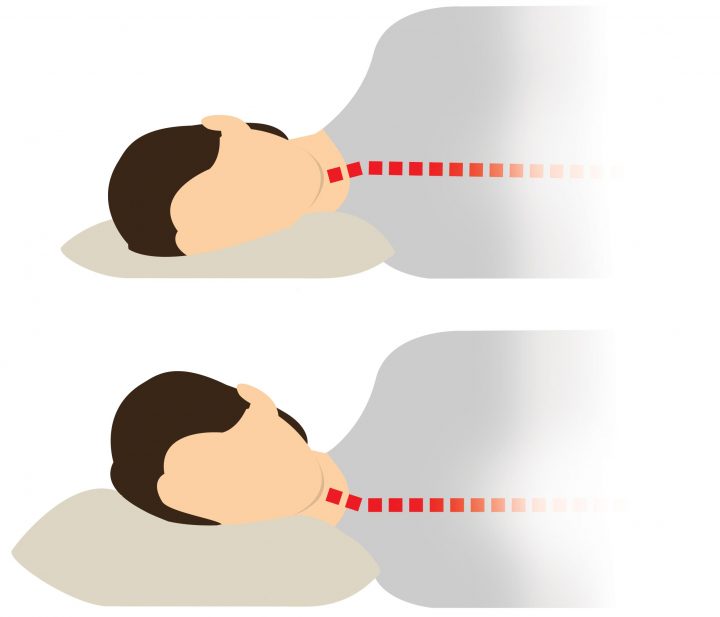
Shoulder pain can often get in the way of quality sleep. Even a mild ache can keep you tossing and turning all night.
Shoulder pain isn’t always evident until you climb into bed. Sometimes the pain-causing compression of muscles, nerves and connective tissue only occurs when you lie down. Gravity pulls on your body differently when you’re reclined, which can reveal or cause pain that wasn’t present during the daytime.
The best way to avoid all sleep related pain isn’t easy or interesting 🙁
Cue the sad trombones… I know this isn’t what you came to read, but it must be said. Consistent exercise is proven to both prevent injuries and aid in sleeping. It’s a long-term commitment and it’s hard work. However, it’s a crucial part of preventative care.
If you’re a side sleeper, try a new sleep position.
Shoulder pain is usually exacerbated for side sleepers because body weight results in pressure on connective tissues and nerves all night. Pain can often be completely eliminated IF you’re able to sleep on your back. It’s a challenge for most, but it could be the resolution to your shoulder pain.
Looking for simpler solutions? Sleeping with shoulder pain is sometimes made easier with just a new pillow or mattress.

The wrong pillow can exacerbate or even be the cause of your shoulder pain.
In an effort to get a little more loft (height) out of their worn-out pillows, some people fold them in half. This most often elevates their heads too high, causing an uncomfortable upward bend in their bodies. Alternatively, many sleep with their arms under their pillows. Both situations can put pressure and stress on our muscles, joints, and nerves in shoulders and cause unnecessary agitation.
Try replacing your pillow with a more suitable one that supports your head properly and comfortably. A good pillow will keep your spine from bending unnaturally upwards or downwards and provide comfortable, even support for your entire head, neck and shoulders.
The firmness of your mattress also is a factor in your sleeping position and comfort.
Pillow top mattresses have become very popular. While they can feel very comfortable initially, they can become a detriment to good sleep. That’s because they’re often too soft. Thus, they don’t adequately support the heavier parts of your body. Your shoulders may be sustaining more pressure due to the mattress sagging too much under the weight of your torso.
OK great, but what can be done about the shoulder pain I’m feeling right now?
If you’ve just woken with sleep-related shoulder pain, try these tips:
1. Give your neck and shoulder muscles a rest.
Your giant head weighs around 11 lb. That’s a lot of weight that your neck and shoulder muscles need to support. Give your muscles a break. If you’ve got some time to spare, lie down. Make sure your head is in a neutral position and that you’ve got a comfortable pillow. More rest is often the best remedy even if you just rolled out of bed.
2. Do your best to avoid stress.
Are you worried that the boss will find out you’ve been stealing from the business for years? Concerned about an early death? Forget your problems and watch a movie or read a book! I recommend Ozark on Netflix.
3. Ice in short increments.
It can work well for some, but cooling can aggravate more serious issues, so If the pain worsens, remove the ice immediately.
4. Have a partner massage the affected area.
Who doesn’t appreciate a good massage? Shoulder pain or not, it generally makes life in the moment a little better.
5. Use a warm compress.
A warm damp towel (use a microwave to heat it) can help to increases circulation and is often effective in providing relief to stiff muscles. Beware, heat can make inflammation worse, so if your symptoms deteriorate, remove that heat immediately!
6. Pop a couple of what modern medication has to offer.
Aspirin, acetaminophen, or ibuprofen can help a lot if the pain isn’t too ridiculous. It should go without saying, but please follow the directions on the packaging.

7. Stretch the muscles in your shoulders.
It’s always best to warm up muscles before stretching, so it’s advisable to take a hot shower or use a hot compress first. The key with stretching is to not overdo it! Try this simple shoulder stretch recommended by health line.com:
- Bring your right arm across your chest.
- Place it in the crease of your left elbow or use your left hand to support your arm.
- Hold this position for up to 1 minute.
- Repeat on the opposite side.
- Do each side 3–5 times.
Are you consistently getting no sleep with shoulder pain?
If you had a bad night or two, try all of the above and hopefully you’ll get some relief. If you’re experiencing shoulder pain from sleeping on a consistent basis, do something that addresses the root of the issue(s) rather than just treating the symptoms. I recommend that no-fun exercise!
